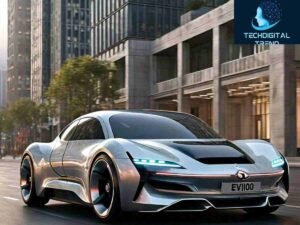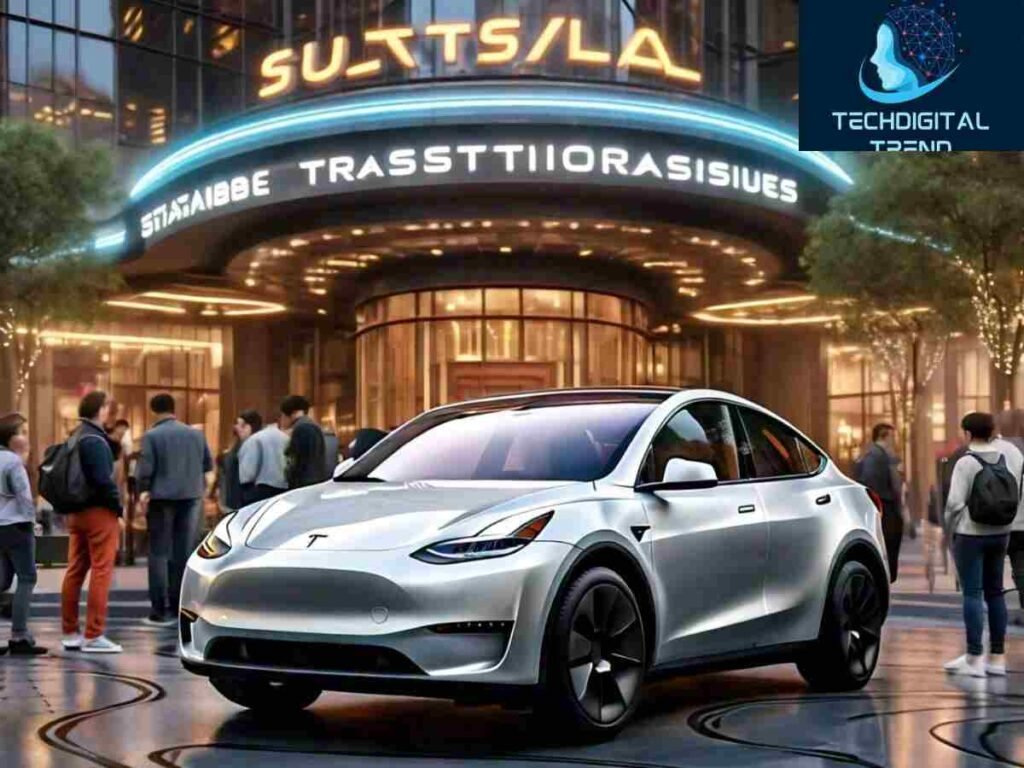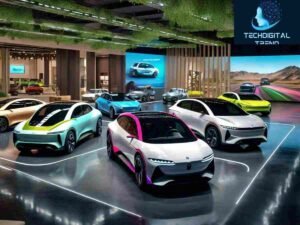Table of Contents
ToggleElectric Vehicles
The world is shifting gears towards a more sustainable future, and the automotive industry is no exception. Electric Vehicles (EVs) have been gaining traction in recent years, with significant improvements in battery technology and charging infrastructure. As consumers become increasingly environmentally conscious, EVs are poised to revolutionize personal transportation and logistics. In this blog, we’ll explore the current state of EVs, their benefits, and the challenges that lie ahead.
The Current State of Electric Vehicles
Global EV Sales
In 2022, global EV sales reached a record high of 6.7 million units, a 55% increase from the previous year. China leads the pack, accounting for over 50% of global EV sales, followed by Europe and the United States.
Charging Infrastructure
As of 2022, there are over 2.7 million public charging points worldwide, with China having the largest share. Europe and the United States are also investing heavily in expanding their charging networks.
Benefits of Electric Vehicles
Environmental Benefits
Urban areas’ greenhouse gas emissions and air pollution are decreased by EVs as they have zero exhaust emissions. They also have a lower carbon footprint than traditional internal combustion engine vehicles (ICEVs).
Cost Savings
EVs are generally cheaper to operate, with lower fuel costs (electricity is often less expensive than gasoline) and reduced maintenance costs (fewer moving parts means less wear and tear).
Performance

EVs offer exceptional acceleration and smooth, quiet rides, making them a popular choice for drivers who value performance.
Safety
EVs have a lower center of gravity due to the placement of batteries, making them less likely to roll over. They also tend to have a more rigid body structure, which can improve crashworthiness.
Government Incentives
Purchasing an EV can be encouraged by several governments through tax credits, refunds, or exemptions from certain levies.
Challenges to EV Adoption
Range Anxiety
One of the biggest concerns for potential EV buyers is range anxiety, the fear of running out of charge before reaching their destination. This is mitigated by the increasing availability of fast-charging points and improving battery technology.
Higher Upfront Costs
While EVs are generally cheaper to operate, they often come with a higher purchase price than ICEVs. However, many governments offer incentives to offset this cost.
Charging Time
While fast-charging technology is advancing, charging an EV can still take longer than filling up a gas tank.
Limited Resale Value
The resale value of EVs can be lower than ICEVs, due to concerns about battery degradation and the pace of technological advancements.
The Future of Electric Vehicles
Increased Adoption
EVs are set to become a popular option for freight and personal mobility as battery technology advances and charging infrastructure grows. Governments are also setting ambitious targets for EV adoption, with many countries aiming for 50% or more of new car sales to be electric by 2030.
Advancements in Battery Technology
Solid-state batteries, which replace the liquid electrolyte with a solid material, promise even greater improvements in range, charging speed, and cost.
Expansion of Charging Infrastructure
Governments and companies are investing heavily in expanding and upgrading charging networks, making it easier for people to own and use EVs.
Increased Investment in EV Research and Development
Companies and governments are investing heavily in EV research and development, driving innovation and improvement in the industry.
Conclusion
Electric Vehicles are gaining traction, with significant improvements in battery technology and charging infrastructure. While there are still challenges to overcome, the benefits of EVs make them an attractive choice for environmentally conscious consumers. As governments and companies continue to invest in EVs, we can expect to see increased adoption and a more sustainable future for transportation.
The rise of Electric Vehicles (EVs) marks a significant shift towards a more sustainable future in transportation. With improvements in battery technology and charging infrastructure, EVs are becoming an increasingly viable option for personal transportation and logistics. While there are still challenges to overcome, the benefits of Electric Vehicles make them an attractive choice for environmentally conscious consumers. As governments and companies continue to invest in EVs, we can expect to see increased adoption and a more sustainable future for transportation.
Key Takeaways
- Electric Vehicles are gaining traction, with significant improvements in battery technology and charging infrastructure.
- Benefits of EVs include environmental benefits, cost savings, performance, safety, and government incentives.
- Challenges to EV adoption include range anxiety, higher upfront costs, charging time, and limited resale value.
- The future of EVs looks promising, with increased adoption, advancements in battery technology, expansion of charging infrastructure, and increased investment in EV research and development.
Open this link: Tap to here















